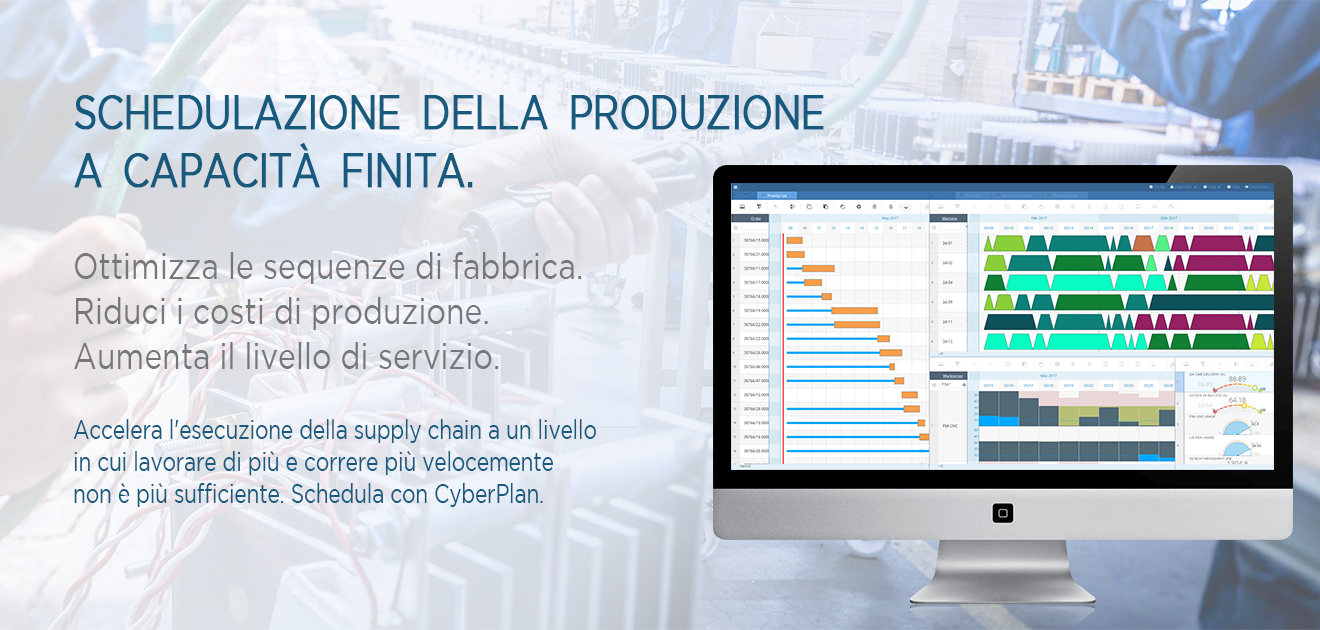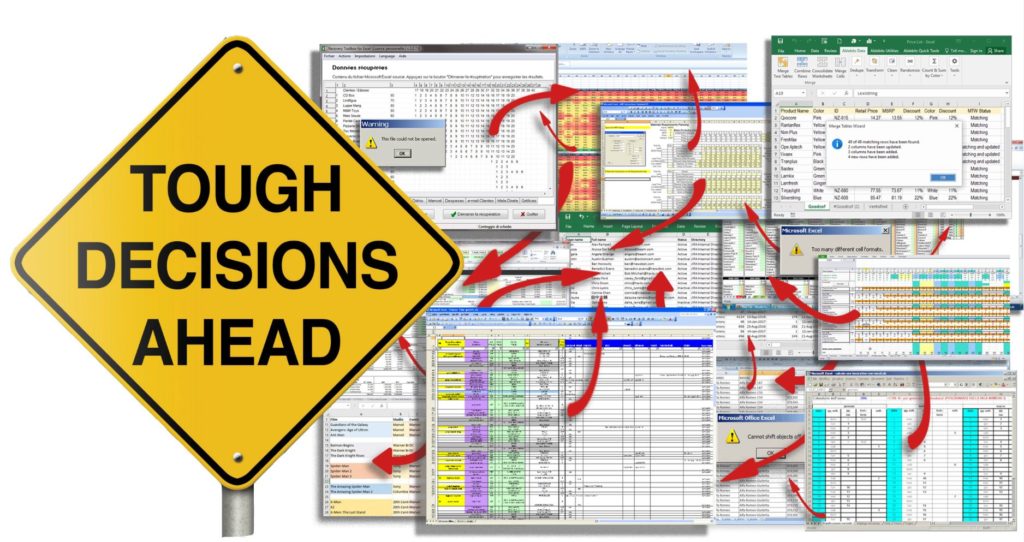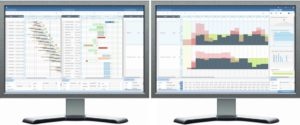In an increasingly demanding market, manufacturing companies need to produce more, minimising costs and maintaining a high level of service. But, in addition to being demanding, the market is becoming increasingly uncertain and requires companies to be more flexible and responsive to customer requests.
To achieve these objectives and remain competitive on the market, companies are asking production to maximise their operating performance by combining them with finance and sales department objectives. In addition to business operational planning, it is therefore useful to carry out other operations in the best possible way.
The production must therefore be able to create production plans with optimal processing sequences that allow:
- Increase efficiency by saturating plants, personnel and resources without affecting delivery dates;
- Respect constraints and priorities while remaining flexible and reactive in the event of unforeseen events;
- Maintain minimum stocks without generating shortages;
- Maintain a high level of service while reducing set-ups and maintaining production flexibility.
This means above all being able to make decisions quickly, on reliable data, and knowing the impacts.
But does the company have the necessary tools to make planners able to make decisions quickly, on reliable data, and knowing their impacts by aligning with business objectives?
Many companies are still trying to create optimized production plans by processing numerous Excels. But Excel, while on the one hand allows the planner simplicity and speed of modification, on the other it does not allow him to interpret the data he processes or to verify its impacts and allows him to manage only a limited amount of data. In fact, even the most elaborate Excels do not allow you to answer fundamental questions for business competitiveness:
- What happens with the arrival of a new order to the load of resources and the sequence of operations?
- When will that product begin to be processed and, above all, what is the date on which it will be finished? How does it impact purchasing?
- Am I able to meet the demand? If not, what can I do to satisfy her? What are the impacts on service level, warehouses and resource saturation?
- What is the best work sequence that allows me to minimize set-ups, meet deliveries, and reduce production lead times to keep inventory low?
Not being able to answer these questions, the planner is not able to create production sequences that achieve the company’s objectives and that support the company to remain competitive by satisfying customers, reducing costs, and producing more and better.
Precisely to answer these questions and make the planner able to make decisions safely and confidently, companies are increasingly using advanced tools for production planning and scheduling. The main tools are Advanced Planning & Scheduling (APS) of which the main core is the finite capacity detail scheduler.
Finite Capacity Detail Scheduler
The tool that allows the planner to make the best decisions to optimize production sequences by aligning them with the business is the finite capacity production scheduler. As its name suggests, it is an advanced tool that allows you to create sequences of optimized factory operations that take into account capacitive constraints, priority, demand and availability of materials.
CyberPlan is the finite capacity production scheduler chosen by the best performing Italian and foreign manufacturing companies to achieve the highest levels of competitiveness.
- Thanks to advanced technology and high configurability, it adapts perfectly to any type of production, creating optimised, feasible and realistic sequences.
- It has the fastest computing capacity, allowing you to create different scenarios with a large amount of data in just a few seconds. For this reason, it is possible to plan on detailed data and very realistic scenarios.
- The speed combined with optimized and interactive graphics allows the planner to transform a large amount of data into useful information and to guide him in identifying critical issues and unforeseen events and solve them in a few seconds, keeping the focus on business objectives.
- CyberPlan’s strong natural configurability allows the software to adapt over time and at any time to business changes in production, process or business strategy.
- Integrability, stability and best practices complete the CyberPlan scheduler, allowing it to integrate perfectly into a consolidated system of business tools, and to remain solid and performing over time.
- For companies that need to plan production even in the medium and long term, the CyberPlan scheduler is the only one to be truly integrated with all planning and demand planning logics, allowing joint and collaborative planning at all levels of operation (MPs, MRP, CRP, FCP, FCS).
- Also available in the Cloud, it allows unlimited dissemination of information and a sharp reduction in initial investment with a high ROI from the first months of use.
Thanks to these features, CyberPlan allows the planner to reach all the necessary information, process it, and make the best decisions quickly and safely, knowing the impacts at both operational and business levels. The planner is able to manage production reliably simply and quickly, reducing costs, increasing efficiency and raising the level of service.
With CyberPlan scheduling is the first step to compete in the current and future market. Not using this technology will put your company at a disadvantage as other companies equipped with advanced software for production planning and scheduling accelerate supply chain execution to a level where working harder and running faster is no longer enough.
{{cta(‘ab85071a-d654-4295-bbad-b8e8302eeff7’)}}


